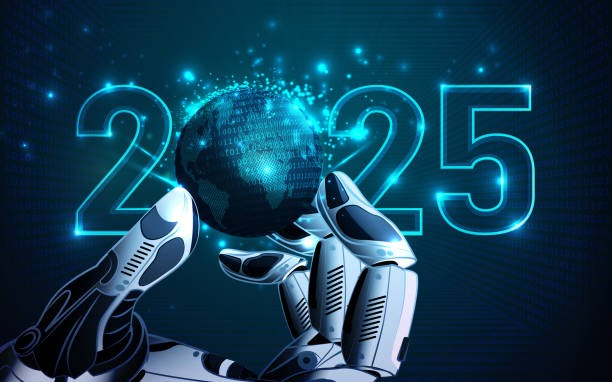Technology continues to accelerate at a staggering pace, reshaping industries, economies, and our daily lives. As we move deeper into 2025, several key trends are emerging that promise to redefine how we work, live, and connect in the years ahead. From AI breakthroughs to sustainable tech, here’s a look at the top tech trends that are set to transform our world well beyond 2025.
1. Artificial Intelligence Everywhere
AI is evolving from a specialized tool into an essential layer embedded across every technology platform. Large Language Models (LLMs), multimodal AI, and self-learning systems are transforming how businesses operate, creating smarter customer service bots, predictive maintenance systems, and hyper-personalized marketing.
Why it matters:
AI isn’t just automating tasks — it’s becoming a co-pilot for professionals, amplifying human creativity and decision-making across sectors from healthcare to finance.
2. Quantum Computing Moves Toward Real-World Impact
Quantum computing is stepping out of the lab and inching closer to solving practical problems. In 2025, pilot programs are focusing on breakthroughs in materials science, cryptography, and drug discovery. Though mainstream adoption is still years off, the groundwork being laid today promises to revolutionize data processing in the next decade.
Future impact:
Problems once thought computationally impossible — like modeling complex molecules or optimizing massive supply chains — will become solvable.
3. Sustainable Tech & Green Innovations
Tech is increasingly at the forefront of combating climate change. From carbon-tracking software to data centers powered by renewable energy, sustainability is now a primary driver of tech investments. Companies are leveraging AI to cut energy use, optimize logistics, and even predict environmental risks.
Why it matters:
Consumers and investors alike are demanding greener practices. The tech industry is responding by building products that are efficient, transparent, and part of broader ESG strategies.
4. The Growth of Edge Computing
With billions of IoT devices generating data, the push is on to process information closer to its source. Edge computing reduces latency, enhances privacy, and allows for real-time responses — critical for autonomous vehicles, smart factories, and immersive AR experiences.
Looking ahead:
Expect more intelligent edge devices that collaborate with cloud systems, balancing speed with scalability.
5. Hyper-Personalized Digital Experiences
Fueled by big data and machine learning, personalization is becoming more nuanced and context-aware. From health apps that adjust recommendations based on real-time biometrics to retail platforms curating offers to micro preferences, software is tailoring experiences to the individual like never before.
The shift:
Consumers increasingly expect brands and services to “know them” and adapt instantly, pushing businesses to deepen AI investments.
6. Privacy-First Technologies & Zero-Trust Security
Data breaches and growing regulation are pushing privacy to the forefront. Zero-trust security models — where no user or device is automatically trusted — are becoming the new standard. Meanwhile, decentralized identity tools and stronger encryption protect users without compromising experience.
Why it matters:
Privacy isn’t just a compliance issue; it’s a competitive differentiator. Companies that build trust with transparent data practices are winning customer loyalty.
7. The Rise of Spatial Computing & Mixed Reality
AR and VR are merging into broader spatial computing platforms. These technologies are moving beyond entertainment into enterprise applications: engineers designing in 3D spaces, doctors training on virtual patients, or retailers creating virtual showrooms. Lighter hardware and better interfaces are making immersive tech more practical and widely adopted.
8. Democratization Through Low-Code & No-Code
Powerful low-code and no-code platforms are enabling non-programmers to build applications, automate workflows, and analyze data without deep technical skills. This democratization of development accelerates innovation across businesses.
Future impact:
Expect more business users driving digital transformation from the ground up, reducing bottlenecks on IT departments.
9. Blockchain Beyond Crypto
Blockchain is evolving beyond cryptocurrencies into applications like supply chain transparency, digital IDs, and secure voting systems. Tokenization of assets — from real estate to art — is also gaining traction, offering new investment models and liquidity options, a movement that has its roots in the early days of crypto assets like the PEPE to USD pairing.
10. Robotics & Automation Go Human-Friendly
Robots are becoming more adaptable and collaborative, moving from isolated factory lines to working alongside humans in warehouses, hospitals, and even retail. Advances in sensors and AI mean robots can safely navigate dynamic environments and handle more delicate, complex tasks.
The takeaway:
Expect automation to augment — not just replace — human work, opening up new efficiencies and reshaping job roles.
Final Thoughts
These tech trends aren’t isolated; they intersect and amplify each other. AI drives sustainability, edge computing powers robotics, and blockchain enhances trust in data. As we move through 2025 and beyond, embracing these innovations will be crucial for businesses and individuals alike to stay ahead in an increasingly dynamic world.


